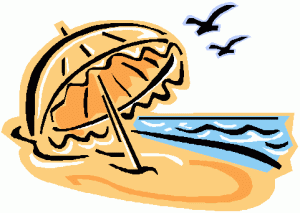The end of the year is synonymous with parties and celebrations and this includes a special trip to the beach. At this time of year the beaches become more crowded and therefore some precautions regarding food must be taken to avoid health problems.
On the beachfront everything looks very tasty, but not all options are a good choice, as all the beach stalls are full of pastries, buttered corn, fried snacks, soft drinks, crepes and other sweets. What we should do is avoid foods with sauces, cheese and mayonnaise, fats (butter and fried foods) and sugars (soft drinks and sweets in general).
It is best to always give preference to coconut water (very rich in vitamins and minerals), fruit popsicles (low fat percentage), natural fruit juices, açaí in a bowl, corn without butter and baked pastries with lean fillings (ricotta, broccoli, turkey breast, chicken), but pay attention to whether this type of food is kept at the appropriate temperature inside the greenhouses.
To guarantee a peaceful walk, it is also essential to pay close attention when choosing the place to sell the food, its origin and the conditions of the handlers, who must have clean clothes, short nails, tied or protected hair and have a place to hang out. hand hygiene. Taking these restrictions into account, in general, the best option is fixed establishments, such as kiosks, rather than mobile and street outlets.
These precautions aim to prevent food poisoning caused by the presence of bacteria. The most common causes of food contamination are: inadequate storage and contact with contaminated utensils, handlers and other foods.
A good alternative is to take some foods from home, such as fruits (apple, grapes) and whole-grain biscuits, without forgetting to take care of storage. But never stop eating every 3 hours and drinking plenty of fluids.
Furthermore, it is important that bathers also wash their hands before eating, using alcohol gel or a wet wipe, in order to avoid contamination.

